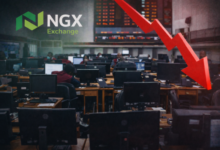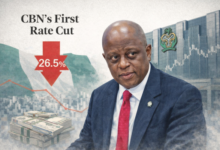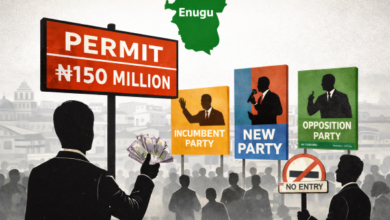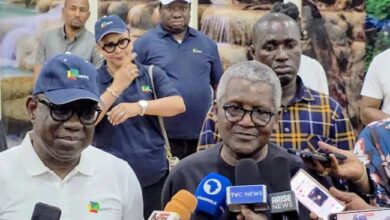Tinubu Summons GenCos over N4Trn Debt as Nigeria faces electricity systemic risk
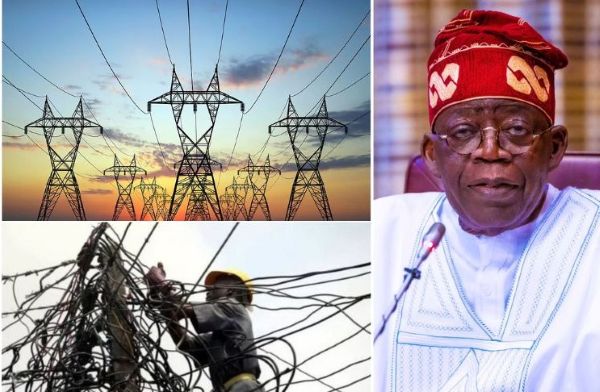
tresident Bola Ahmed Tinubu is set to meet with the leadership of Nigeria’s Power Generation Companies (GenCos) over a ballooning debt burden estimated at over ₦4 trillion, in a make-or-break intervention aimed at rescuing the country’s fragile electricity sector.
This was disclosed by the Minister of Power, Adebayo Adelabu, through a statement released by his Special Adviser on Strategic Communications and Media Relations, Bolaji Tunji, on Sunday in Abuja.
The emergency meeting, scheduled to hold at the Presidential Villa, comes amid warnings from power industry leaders that the entire electricity value chain is at risk of collapse without immediate liquidity injection and systemic reform.
DEBT DYNAMITE: What’s at Stake?
The ₦4 trillion debt—accrued largely from unpaid invoices to GenCos by the Nigerian Bulk Electricity Trading (NBET) Plc and the Market Operator (MO)—has not only starved GenCos of operational capital but has also snowballed into a national economic emergency.
Power producers, many of whom rely on bank loans and dollar-denominated maintenance contracts, are now unable to service debts, procure gas, or maintain infrastructure. The ripple effects are already manifesting in epileptic generation, increased load-shedding, and prolonged blackouts across major cities.
FG’s Offer: Cash + Promissory Notes
According to Minister Adelabu, the Federal Government has agreed to immediately settle a substantial portion of the debt, with the balance to be paid off using promissory notes over a six-month window.
“We recognise the urgency of this matter. The government is committed to resolving this debt to stabilise the sector and prevent further crisis,” Adelabu stated.
While this may offer temporary relief, industry analysts warn that without structural reforms, the cycle of debt and decay may simply repeat itself.
THE SYSTEMIC ROT: Subsidies, Tariffs, and Unrealistic Policies
The minister did not mince words on the sector’s internal contradictions, admitting that poor policy implementation, legacy debts, and unsustainable subsidies have crippled growth.
He emphasized the need for full liberalisation of the power sector and the adoption of cost-reflective tariffs, a politically sensitive but economically necessary step. The current tariff regime, riddled with subsidies and cross-subsidies, has become fiscally untenable.
“Citizens must pay the appropriate price for the energy consumed. The Federal Government will continue to provide targeted subsidies for economically disadvantaged Nigerians, but we must realise that our economy cannot sustain blanket subsidies indefinitely,” Adelabu said.
He also hinted at regulatory overhauls aimed at reducing levies and incentivizing investments, while encouraging GenCos to collaborate on public education around power consumption and tariff realities.
GENCOS SOUND THE ALARM: “System Could Collapse”
The gravity of the situation was underscored by leaders of the GenCos during a closed-door session with the minister.
Col. Sani Bello (Rtd), Chairman of both Mainstream Energy Solutions and the Association of Power Generation Companies (APGC), warned that persistent liquidity issues had left most GenCos unable to service debt or maintain generation assets.
“Without urgent intervention, the entire power ecosystem could collapse,” he cautioned.
Mr. Kola Adesina, Chairman of Egbin Power and First Independent Power Limited, described the scenario as a national emergency, stressing that consistent electricity is critical to the survival of homes, industries, and healthcare facilities.
FOREX SHOCK, GAS SUPPLY GAPS AND POLICY FAILURE
Joy Ogaji, CEO of the APGC, painted an even bleaker picture, citing chronic payment delays, erratic gas supply, multiple taxation, and currency devaluation as existential threats.
She highlighted how the Naira’s plunge from ₦157/$1 in 2013 to over ₦1,600/$1 in 2024 has devastated the GenCos’ ability to meet financial obligations.
“GenCos have borne unsustainable risks—from grid failures to unproductive taxes—while remaining patriotic,” she lamented.
Ogaji’s comments reflect broader frustrations in a sector that has been plagued by decades of misalignment between policy promises and execution.
BRANDECONOMY’s Take: Urgency Meets Opportunity
While the proposed presidential meeting signals renewed political will, it must translate into actionable commitments—clearing backlogs, reforming tariff frameworks, enforcing market discipline, and depoliticizing power sector governance.
Nigeria’s economic revitalization—industrialization, digital transformation, MSME growth—rests on reliable power. The cost of inaction is already evident: stifled productivity, rising generator imports, and deepening investor pessimism.
The coming weeks will test not only Tinubu’s energy agenda but also the government’s ability to align economic imperatives with social realities.
BRANDECONOMY will continue to track developments in Nigeria’s energy sector, offering credible analysis, stakeholder insights, and actionable intelligence for policymakers, investors, and consumers.




